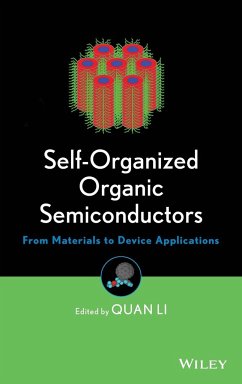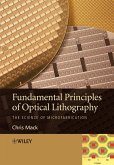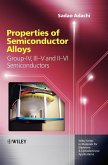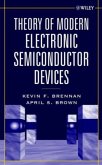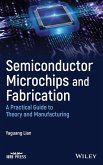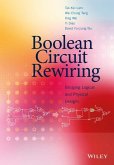This book focuses on the exciting topic on self-organized organic semiconductors - from materials to device applications. It offers up-to-date and accessible coverage of self-organized semiconductors for organic chemistry, polymer science, liquid crystals, materials science, material engineering, electrical engineering, chemical engineering, optics, optic-electronics, nanotechnology and semiconductors. Chapters cover chemistry, physics, processing, and characterization. The applications include photovoltaics, light-emitting diodes (LEDs), and transistors.
A cutting-edge introduction to self-organized organic semiconductors
This book provides a thorough, up-to-date, easily accessible introduction to the exciting topic of self-organized organic semiconductors. The first book on the market devoted to the subject, it combines information from across the literature in one complete volume, covering organic semiconductor materials, fabrication, characterization, and device applications.
Self-contained chapters focus on key areas carefully selected from this vast interdisciplinary field, exploring the self-organized features that put these organic semiconductors at the forefront of scientific research today. The material is highly relevant for readers in diverse disciplines, from organic chemistry to nanotechnology, from materials science to liquid crystals, and many more. Coverage includes:
Applications in photovoltaics, light-emitting diodes (LEDs), and transistors
Innovative methods such as crystal engineering, conjunction, and self-assembly
Molecular materials, liquid crystals, oligomers, carbon nanotubes,fullerenes, and polymers
The scientific fundamentals, supplemented with resource listings and figures
A useful resource for researchers and engineers in academia and industry, Self-Organized Organic Semiconductors will provide interested readers with the grounding they need to jump-start the development of novel organic semiconductors and applications.
Hinweis: Dieser Artikel kann nur an eine deutsche Lieferadresse ausgeliefert werden.
A cutting-edge introduction to self-organized organic semiconductors
This book provides a thorough, up-to-date, easily accessible introduction to the exciting topic of self-organized organic semiconductors. The first book on the market devoted to the subject, it combines information from across the literature in one complete volume, covering organic semiconductor materials, fabrication, characterization, and device applications.
Self-contained chapters focus on key areas carefully selected from this vast interdisciplinary field, exploring the self-organized features that put these organic semiconductors at the forefront of scientific research today. The material is highly relevant for readers in diverse disciplines, from organic chemistry to nanotechnology, from materials science to liquid crystals, and many more. Coverage includes:
Applications in photovoltaics, light-emitting diodes (LEDs), and transistors
Innovative methods such as crystal engineering, conjunction, and self-assembly
Molecular materials, liquid crystals, oligomers, carbon nanotubes,fullerenes, and polymers
The scientific fundamentals, supplemented with resource listings and figures
A useful resource for researchers and engineers in academia and industry, Self-Organized Organic Semiconductors will provide interested readers with the grounding they need to jump-start the development of novel organic semiconductors and applications.
Hinweis: Dieser Artikel kann nur an eine deutsche Lieferadresse ausgeliefert werden.

